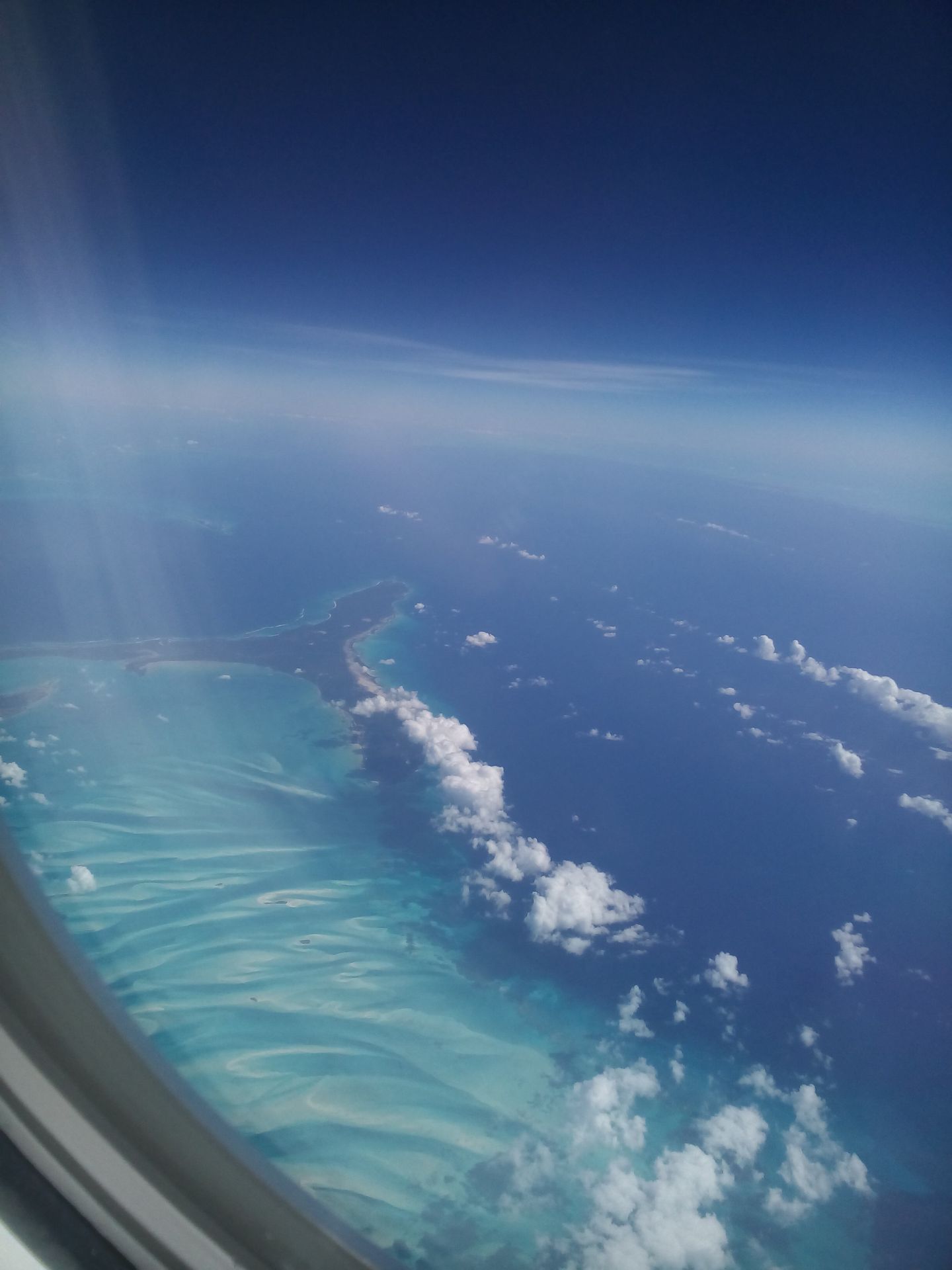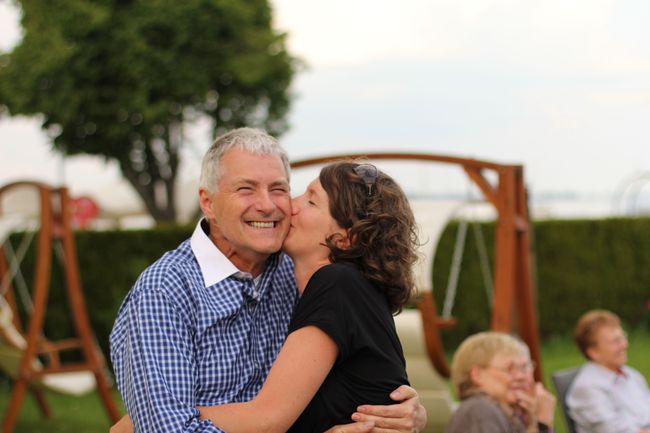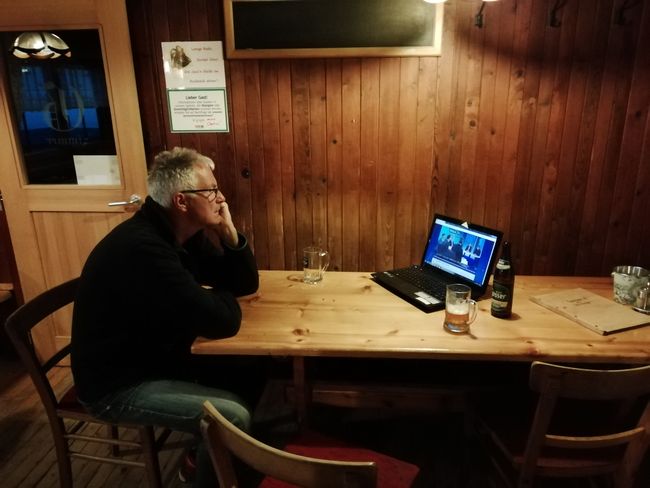Farewell to the hut romance
வெளியிடப்பட்டது: 24.09.2019
செய்திமடலுக்கு சந்தாதராகவும்
I just checked again, my last post was almost exactly four weeks ago: 24.08. We had managed 14 days at the hut. 14 days still lay ahead of us. Everything has been written about hut living. Not much has changed in the second half. I really have to think about what else has shaped the hut life if I want to capture it here. We have been back home for 14 days now.
It's interesting how, when you come back, four weeks of experiences are reduced when you tell others about the time. They are shortened to five sentences, in which you report on the time. These four weeks are reduced, boiled down like a gravy on the stove, and the small picture that remains solidifies as a memory. This makes me wonder if this reduction process really captures the essence of time. For Helmut, the focus of his reports is the insight gained from looking into the freezers of a hut kitchen, and the realization that he cannot imagine spending a whole season in a hut, especially if you can't leave it by car. I am often asked about the vague impression, based on our blogs and brief messages, that "the time at the hut wasn't so great", and then I try to report in a few words, embellished with small examples, how my "collaboration" with the hut landlady went.
Then we try to portray a different image of Austria, the landscape, the people, the customs, and the food culture, than most of our counterparts know from visits to Tyrol or Carinthia.
During that time and even in the days that followed, I was very preoccupied with the question of why we (in this case, both of us) so quickly submit to a system without vital necessity, a system that, from the beginning, we find at least to some extent suspect, unfair, and not sustainable or justifiable. In a nutshell: without protesting and without getting into conflicts. Well, it only manifests itself in small things like shower times, selling 3-day-old coffee, or dispensing drinking water. But we have actually only "rebelled" in small ways.
Why? Avoiding conflicts because, in principle, you have the boss around 24 hours a day, because you will be leaving again after four weeks, because you get used to it so quickly!? Pride? Not taking yourself, your own assessments, or even your own needs seriously enough? The relationship of dependence as an employee, because you prioritize an employment contract over human relationships?
In any case, we have adapted. The working day usually started around 10 a.m. If the weather was nice, we had breakfast outside with a view of the Hochwechsel, read, used the time for a little sprint downhill and uphill, rarely did a bit of Pilates... The days when things got stressful (until a maximum of 4 p.m.) can be counted on one hand: public holidays, good weather, groups booked. Otherwise, we sometimes spent an hour on the Internet, read, and painted in the hope that guests would still find their way to the hut. Helmut had to do a lot of washing up. I have never swept as much in my entire life. Sometimes we still cooked ourselves because we couldn't stand the hut's offerings anymore. On free days, we often started our trips in the evenings. A nice last weekend of summer was on September 1st. We stayed overnight in Königsdorf at the bathing lake, swam in the evenings and mornings, strolled through Graz during the day, and so on. The weekend before that, there was a Lindy festival in Fürstenfeld with great bands, and we danced a lot and then stayed somewhere in the Butnik. On one Saturday, I made a huge alpine tour, so I really had sore muscles on Sunday.
Despite all this, I counted the days and was glad about the bad weather announced for our last weekend. Fog, drizzle, and hardly any visibility. So we agreed with the boss that we could leave on Friday morning instead of Sunday evening. I'm already experienced in packing my bags, but I've never done it so quickly and so well prepared, I think. ;o)
I notice that there is a strange feeling when I think about the time. I have rarely had the experience of getting along so badly with someone, of not being able to endorse, excuse, let alone understand their behavior. But it's true that if that's the case, I can hardly build any personal contact with these people. I notice that when I think about other examples. Another realization. My idea of spending time on a mountain hut was actually different. But the main thing was to be alone with myself, that's what my idea of a summer in the mountains was all about. Well, my version with running cold water, wood-burning stove, and bad cell phone reception (= Hugo-Gerber-Hütte) looked a bit more romantic...
So, now I have filled up the reduction again, expanded it. I don't even know how to say that in culinary terms, deglazed with white wine!? Even though one hour and one page certainly do not cover all aspects. After all, there were other employees at the hut as well (a Hungarian cook, a girl from the village, the landlady's son). Nice encounters with guests (four funny guys on bicycles, a Viennese couple, people from the villages, the schnapps supplier, a combine harvester rental company). But maybe we'd rather tell you about that personally sometime, if you like, in more than five sentences.
Content
செய்திமடலுக்கு சந்தாதராகவும்
பதில்


